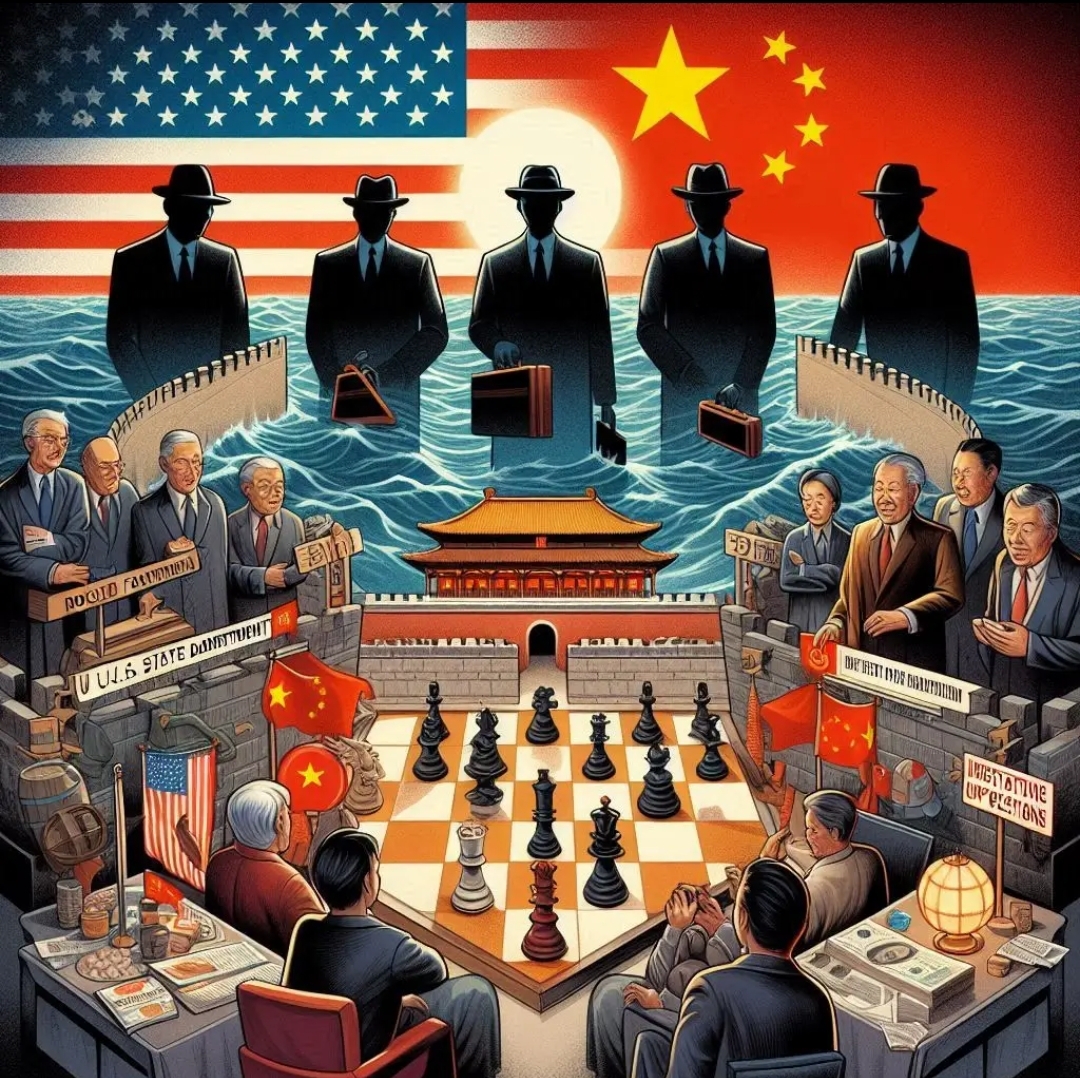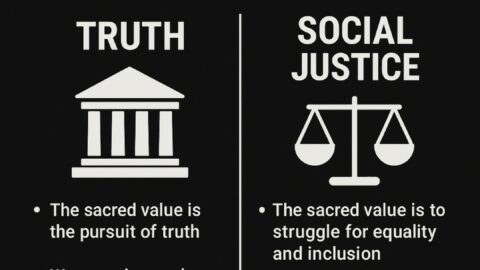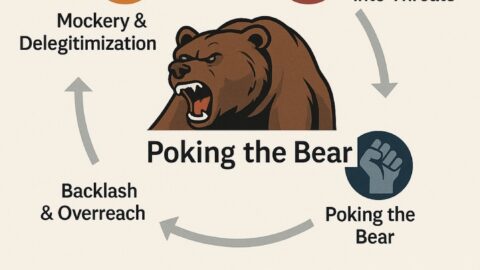Introduction: The Hidden Architects of China’s Revolution
The history of modern China is often presented as an internal struggle: a clash between Nationalists and Communists, culminating in Mao Zedong’s victory and the birth of the People’s Republic of China. But behind the dramatic headlines and propaganda, a far more complex—and troubling—story unfolds. The rise of communism in China was not merely the result of internal dynamics or Soviet pressure. It was also shaped, aided, and ultimately ensured by powerful actors within the American establishment: financial foundations, policy networks, and government agencies whose influence reached far beyond U.S. borders.
The transformation of China from a fragile nationalist experiment into a communist superstate was no accident. It was engineered, funded, and shielded from scrutiny by elite interests in the United States, working quietly but decisively to reshape the destiny of hundreds of millions.
Wall Street’s Foundations: The Puppetmasters Behind the IPR
A key instrument in this transformation was the Institute of Pacific Relations (IPR), a private international association whose American branch was headquartered in New York and deeply intertwined with the country’s most powerful foundations. Over a quarter-century (1925–1950), the IPR received millions from the Carnegie and Rockefeller Foundations, themselves tightly connected to the Morgan and Rockefeller banking empires on Wall Street.
- The IPR’s mission went far beyond scholarly exchange. With its financial lifeline supplied by the elite, the IPR became a platform for academic “experts” and political activists who promoted Communist participation in China’s government and consistently undermined the Nationalist cause.
- Deficits were covered by “financial angels” from the Wall Street establishment, ensuring that the institute’s message and influence continued without interruption.
- Corporate giants such as Standard Oil, International Telephone and Telegraph, General Electric, National City Bank, and Chase National Bank were also significant contributors—evidence that China’s fate was a matter of deep concern for American business and banking elites.
The U.S. State Department and the Sabotage of Nationalist China
The role of the U.S. State Department was pivotal in tipping the scales away from the Nationalists. The actions taken during and after World War II, especially under Secretary of State George C. Marshall, were decisive.
- After the war, General Albert Wedemeyer, America’s top commander in China, strongly advised supporting Chiang Kai-shek’s Nationalist government as it tried to build a democratic China. He warned that inviting the Communists into a coalition would be disastrous.
- Contrary to this advice, Marshall arrived in China with an ultimatum: if Chiang did not allow the Communists immediate entry into the government, all U.S. aid would be cut off.
- When Chiang refused, Marshall and the State Department followed through, slashing military and economic aid and effectively disarming the anti-Communist forces. Wedemeyer’s warnings about the likely consequences—a Communist takeover and immense human suffering—were ignored, and he himself was silenced by the U.S. government.
As a result, in 1949 the Communists, led by Mao Zedong, completed their conquest of mainland China. The Nationalist government retreated to Taiwan, isolated and unsupported. In the aftermath, U.S. officials rushed to cover their tracks, publishing the “White Paper” that shifted blame onto Chiang Kai-shek and denied U.S. responsibility for the outcome.
The Human Cost: Genocide, Terror, and the Remaking of China
The results of this transformation were catastrophic for the Chinese people:
- Mao’s regime presided over some of the worst atrocities of the twentieth century:
- Tens of millions died through the Great Leap Forward, the Cultural Revolution, purges, and campaigns against perceived “class enemies.”
- Traditional Chinese society, religious life, and centuries-old customs were brutally uprooted.
- Forced labor, surveillance, and the destruction of families became routine tools of the state.
- The Communist victory in China destabilized Asia:
- It contributed to the Korean and Vietnam wars, as well as ongoing repression in Tibet, Xinjiang, and elsewhere.
- International implications:
- The new Chinese state pioneered surveillance, propaganda, and police-state methods that would later be exported and emulated globally.
- The immense suffering of the Chinese people became a dark legacy, often minimized or forgotten by those who enabled it.
Who Benefited, and Why?
Why did powerful Americans work—directly or indirectly—to ensure a Communist victory in China?
- The evidence suggests a pragmatic, even cynical, approach: centralized, authoritarian regimes were seen by some Western elites as easier to control, bargain with, and integrate into the emerging global order than nationalist or populist alternatives.
- A Communist China created new opportunities for business, justified military build-up, and supported the narrative of an ongoing struggle that benefitted political and financial interests on both sides of the Pacific.
- The same elite foundations and networks that fostered revolution and social engineering abroad could consolidate influence at home, under the pretext of fighting the very monsters they had helped create.
The Legacy and the Cover-Up
The true history of China’s communist revolution, and the role of American elites in shaping it, remains largely untold in mainstream accounts:
- Whistleblowers like General Wedemeyer were silenced or ignored.
- The activities of the IPR and its backers were downplayed, while official narratives blamed Chinese leaders alone for the disaster.
- The American public and much of the world were left with a sanitized story, missing the deeper lessons about the dangers of hidden influence and foreign manipulation.
Conclusion: Lessons for Today
China’s transformation into a communist superpower was not an inevitable result of internal forces alone. It was shaped—often intentionally—by outside actors with their own motives and agendas. The consequences for the Chinese people were devastating, and the world is still living with the results.
The story of how and why China changed is a warning:
- Foreign intervention and elite manipulation can steer the fate of nations for generations.
- Accountability and transparency are essential if free peoples are to prevent such tragedies from repeating.
- Understanding this history is not just about the past—it’s about seeing clearly who pulls the strings, and why, in the world we inhabit today.







